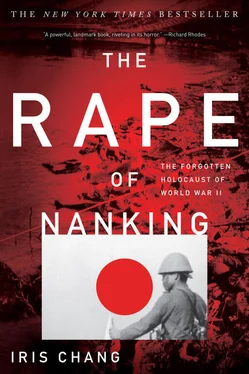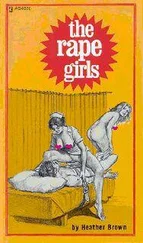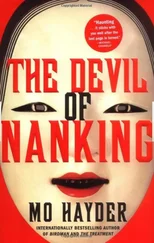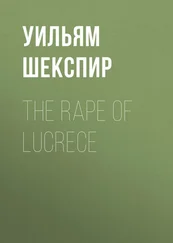How does this happen? All textbooks used in Japan’s elementary and secondary schools must first be approved by the Japanese Ministry of Education. Critics in Japan note that social studies textbooks come under the heaviest scrutiny. For example, in 1977 the Ministry of Education reduced a section on World War II within a standard history book of several hundred pages to only six pages, which consisted mainly of pictures of the American firebombing of Tokyo, a picture of the ruins of Hiroshima, and a tally of Japan’s war dead. The text neglected to mention the casualties on the other side, Japanese war atrocities, or the forced evacuations of Chinese and Korean prisoners to labor camps in Japan.
Much of this censorship might have gone unchallenged had it not been for the efforts of one brave crusader. In 1965 the Japanese historian Ienaga Saburo sued the Japanese government. This lawsuit was the beginning of a legal battle that would span three decades and gain the backing of thousands of sympathetic Japanese followers.
Those who have met Ienaga are struck by his frailty. The bald octogenarian historian trembles when he walks and his voice is hardly louder than a whisper. But underneath a powerful will is at work.
The Ministry interfered with Ienaga’s attempts to document the Nanking massacre for schoolchildren. For example, in his textbook manuscript Ienaga wrote: “Immediately after the occupation of Nanking, the Japanese Army killed numerous Chinese soldiers and citizens. This incident came to be known as the Nanking Massacre.” The examiner commented: “Readers might interpret this description as meaning that the Japanese Army unilaterally massacred Chinese immediately after the occupation. This passage should be revised so that it is not interpreted in such a way.”
Finally, over Ienaga’s protests, the passage was changed to: “While battling the fierce resistance of the Chinese armed forces, the Japanese Army occupied Nanking and killed numerous Chinese soldiers and civilians. This incident came to be known as the Nanking Massacre.” That statement may have satisfied textbook censors as a compromise between Ienaga’s argument and the ministry’s position on the massacre. Unfortunately, the statement is simply not true, because it implies that the massacre occurred in the heat of battle.
The examiner demanded that Ienaga delete his description of the Rape itself, claiming that “the violation of women is something that has happened on every battlefield in every era of human history. This is not an issue that needs to be taken up with respect to the Japanese Army in particular.”
Even the word aggression was deemed taboo. “ Aggression, ” the censors wrote, “is a term that contains negative ethical connotations.” The Ministry of Education also bristled at Ienaga’s efforts to condemn Japanese wartime behavior. It took offense at the following passage: “The war was glorified as a ‘holy war’ and the Japanese Army’s defeat and their brutal acts on the battlefield were completely concealed. As a result, the majority of the Japanese people were not able to learn the truth and they were placed in a position where they had no choice but to cooperate enthusiastically in this reckless war.” The Ministry of Education deleted this passage on the grounds that the expressions “the Japanese Army’s brutal acts” and “this reckless war” were “unilateral criticism of Japan’s position and actions” during World War II.
In 1970, when he actually won his case (Sugimoto Ryokichi, the judge for the Tokyo district court, ruled that the screening of textbooks should not go beyond correction of factual and typographical errors), extremists fired off death threats to the plaintiff attorneys, the judge, and Ienaga himself, while thugs kept the scholar awake by banging pots and pans outside his home and screaming slogans. The police had to escort Ienaga and his counsel in and out of court through a secret door.
With the exception of an award that Ienaga received in 1948 (when, he admits, he was “politically tone deaf”), he has been consistently ignored by the official committees that dole out national prizes in history. The historian has won, nevertheless, a place in history itself. The tremendous publicity that Ienaga receives for his efforts arouses foreign protests that force change upon the highly conservative Ministry of Education. By the 1980s years of lawsuits and political activism were beginning to pay off. In 1982 the distortion of the history of the Rape of Nanking in Japanese high school history textbooks had become such a hot issue in Japan that it created an international diplomatic crisis. All four of Japan’s major national newspapers carried headlines on the subject. Chinese and Korean officials also filed formal protests, accusing the Japanese of trying to obliterate from memory the history of their aggression to lay the basis for reviving militarism in the younger generation. The Japanese textbook examination council, however, tried to defend itself by telling reporters: “It was not fair to describe the Nanking atrocity in three to five lines while mentioning Soviet or American atrocities against the Japanese in only one line or two.”
In the end, the publicity from the textbook controversy accomplished two things. One was the dismissal of Japan’s education minister, Fujio Masayuki, who had rigorously defended the ministry’s policy of whitewashing World War II history. The second was a heightened awareness inside the ministry that the Nanking massacre was something they could no longer ignore. Before Fujio’s dismissal, the National Conference for the Defense of Japan had prepared a right-wing history textbook that summed up the Nanking massacre in this manner: “The battle of Nanking was extremely severe. China has asked Japan to reflect regarding casualties on the part of the Chinese army and civilians.” But after Fujio’s dismissal, the Ministry of Education rewrote the passage to read: “The battle in Nanking was extremely severe. After Nanking fell, it was reported that the Japanese army killed and wounded many Chinese soldiers and civilians, thus drawing international criticism.”
Of course, the issue of textbook censorship is far from over. Rather than denying the massacre outright, some officials in Japan now focus on minimizing its scale. In 1991 screeners at the ministry ordered textbook authors to eliminate all reference to the numbers of Chinese killed during the Rape of Nanking because authorities believed there was insufficient evidence to verify those numbers. Three years later the ministry even forced a textbook author to reduce the number of killings by Japanese soldiers during one day of the Nanking massacre from twenty-five thousand to fifteen thousand people. The original version of the textbook cited a diary account that twenty-five thousand captives were “put away” in a single day. But under pressure from the ministry, the textbook publisher backed down and shortened a quotation from the diary so that it read: “The Sasaki unit disposed of 15,000 people.”
With few exceptions, the academic community in Japan has shied away from studying the Rape of Nanking. Some have argued that not enough time has gone by to render the subject worthy of historical study, or for historians to judge Japanese wrongdoing. Some even react indignantly to criticism of Japanese wartime misdeeds. (“How long must we apologize for the mistakes we have made?” one said heatedly.)
Others act as apologists for Japan and have even allied themselves with conservative Japanese ultranationalists to minimize the significance of the massacre and its death toll. One prominent revisionist who has launched his own crusade to distort the history of the Rape of Nanking and other aspects of World War II history is Fujioka Nobukatsu, a professor of education at Tokyo University. Among his incendiary statements are the assertions that far fewer people were killed in the Rape of Nanking than the Chinese claim; that most of the victims of Nanking were guerrilla soldiers, not civilians; and that the Asian sex slaves, or “comfort women,” of the Japanese military were ordinary prostitutes. Fujioka equated the women’s receipt of financial compensation with “hitting the lottery” and demanded that the Japanese government not only retract the apologies it has offered to these women but strike information about them from Japanese history textbooks.
Читать дальше











